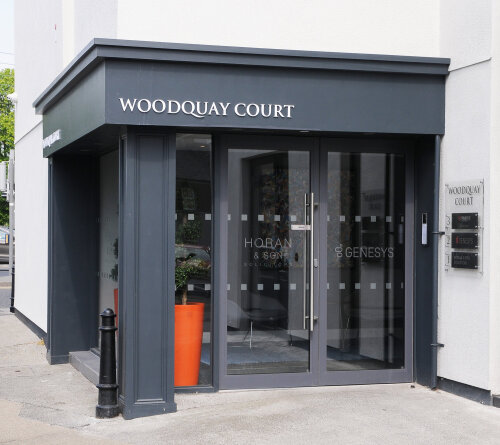Best Commercial Litigation Lawyers in Galway
Share your needs with us, get contacted by law firms.
Free. Takes 2 min.
List of the best lawyers in Galway, Ireland
About Commercial Litigation Law in Galway, Ireland
Commercial litigation refers to legal disputes arising out of business activities, including disagreements between companies, business partners, suppliers, customers, or professionals. In Galway, Ireland's bustling commercial scene, such disputes can relate to contracts, property, banking, intellectual property, and regulatory matters. Commercial litigation aims to resolve these conflicts through negotiation, mediation, arbitration, or court proceedings, ensuring that business relationships and interests are protected under Irish law.
Why You May Need a Lawyer
Commercial litigation can be complex and high-stakes, especially for businesses and entrepreneurs in Galway. Legal support may be necessary in the following situations:
- Contract Disputes: When a party fails to fulfill contractual obligations or disputes the terms.
- Debt Recovery: If you need to recover unpaid debts from clients or partners.
- Shareholder or Partnership Disagreements: When business owners have conflicts over management or finances.
- Employment Issues: Such as breaches of employment contracts or wrongful terminations.
- Property and Lease Disputes: Issues between landlords and tenants or regarding commercial premises.
- Intellectual Property Infringement: If your business brand, product, or trade secret is copied or misused.
- Professional Negligence: When accountants, solicitors, or other professionals are alleged to have acted negligently.
- Insurance Claims: Disputes regarding business insurance coverage and liability.
Having a knowledgeable commercial litigation solicitor helps you understand your position, protect your interests, and pursue an effective resolution.
Local Laws Overview
Commercial litigation in Galway is governed primarily by Irish law, with proceedings typically taking place in the Galway Circuit Court or, for more significant matters, the High Court or Commercial Court in Dublin. Key legal frameworks include the Companies Acts, the Sale of Goods Act, and contract and tort law. The Irish legal system emphasizes fair process and encourages parties to explore alternatives to court, such as mediation or arbitration, especially for business disputes. Certain local or industry-specific regulations may also apply, for example, planning or licensing laws relevant to Galway’s developing business and hospitality sectors.
Additionally, strict legal timelines apply for bringing claims, and procedural rules (such as those set out in the Rules of the Superior Courts) govern how commercial disputes are handled. Legal representation is not mandatory but is highly advisable to navigate these complex requirements.
Frequently Asked Questions
What is commercial litigation?
Commercial litigation is the process of resolving business disputes through negotiation, alternative dispute resolution, or legal proceedings involving commercial entities or individuals engaged in business activities.
Do I need to go to court to resolve a commercial dispute?
Not always. Many commercial disputes are settled through negotiation or mediation. However, if these options fail, court proceedings may become necessary.
What courts handle commercial litigation cases in Galway?
Most commercial claims in Galway begin in the Circuit Court. Larger or more complex cases may be transferred to the High Court or the Commercial Court.
How long does a commercial litigation case usually take in Galway?
The duration varies widely based on complexity, the court's schedule, and whether the dispute is settled early or goes to a full trial. Some cases may be resolved in months, while others can take several years.
Can a non-Irish company sue or be sued in Galway?
Yes, as long as the dispute has a sufficient connection to Galway or Ireland, foreign businesses can initiate or face litigation in Irish courts.
What are the typical costs involved?
Legal fees, court fees, expert witness costs, and other expenses can be involved. Some solicitors may offer fixed or staged fee arrangements. Costs can often be recovered from the other side if you win, but this is not guaranteed.
What evidence will I need for commercial litigation?
Relevant contracts, correspondence, invoices, and any other documentation related to the dispute will be important. Witness statements and expert reports may also be necessary.
Is it possible to appeal a commercial litigation decision?
Yes, most decisions can be appealed to a higher court if there are grounds to do so. Strict timelines and procedures must be followed.
Can commercial litigation be kept confidential?
Court proceedings are usually public, but alternative dispute resolution methods like arbitration can offer a higher degree of confidentiality.
What are the alternatives to court action?
Negotiation, mediation, and arbitration are common alternatives and are often encouraged to save time and costs.
Additional Resources
Several organizations and bodies provide support and information for commercial litigation in Galway and Ireland:
- Courts Service of Ireland - Information on court processes, schedules, and documentation.
- Law Society of Ireland - Offers public information and solicitor directories.
- Galway Chamber of Commerce - Support and advocacy for businesses facing legal issues.
- Citizen’s Information Galway - Offers free, confidential guidance on rights and legal procedures.
- Irish Statute Book - The official repository of Irish laws relevant to commercial disputes.
- Mediation services - Local and national mediators for alternative dispute resolution.
Next Steps
If you are facing a commercial dispute or believe litigation may be necessary, consider the following steps:
- Gather all relevant documents and correspondence relating to your dispute.
- Consult a qualified commercial litigation solicitor in Galway to discuss your situation and legal options.
- Assess the possibility of resolving your dispute through negotiation or mediation before commencing court proceedings.
- Ensure you act promptly to avoid missing any legal deadlines or time limits for bringing a claim.
- Keep detailed records and communication about your dispute for future reference.
Early legal advice can protect your interests and help secure the best possible outcome for your business. If in doubt, seek professional guidance before taking any steps that could affect your legal position.
Lawzana helps you find the best lawyers and law firms in Galway through a curated and pre-screened list of qualified legal professionals. Our platform offers rankings and detailed profiles of attorneys and law firms, allowing you to compare based on practice areas, including Commercial Litigation, experience, and client feedback.
Each profile includes a description of the firm's areas of practice, client reviews, team members and partners, year of establishment, spoken languages, office locations, contact information, social media presence, and any published articles or resources. Most firms on our platform speak English and are experienced in both local and international legal matters.
Get a quote from top-rated law firms in Galway, Ireland — quickly, securely, and without unnecessary hassle.
Disclaimer:
The information provided on this page is for general informational purposes only and does not constitute legal advice. While we strive to ensure the accuracy and relevance of the content, legal information may change over time, and interpretations of the law can vary. You should always consult with a qualified legal professional for advice specific to your situation.
We disclaim all liability for actions taken or not taken based on the content of this page. If you believe any information is incorrect or outdated, please contact us, and we will review and update it where appropriate.














